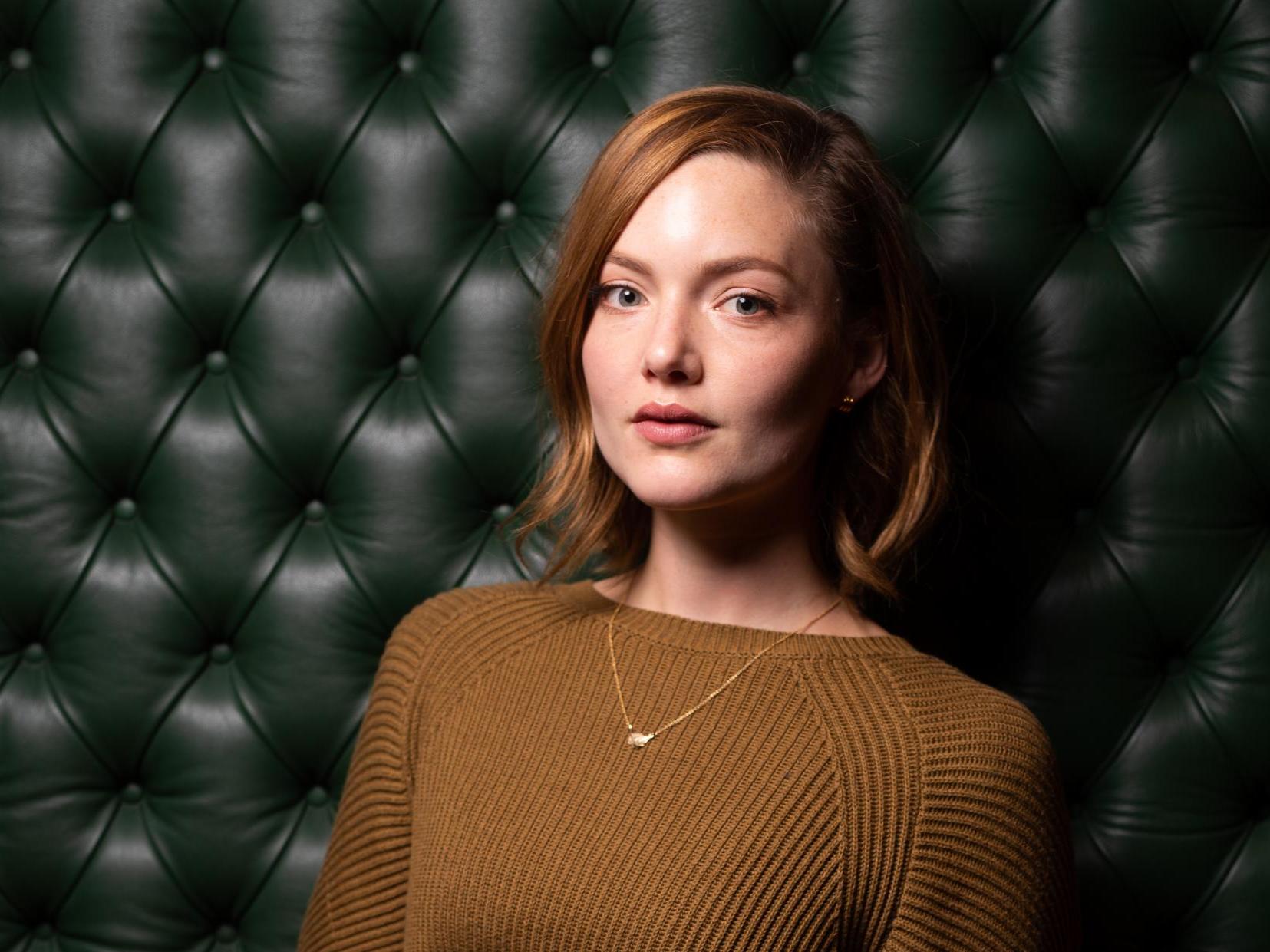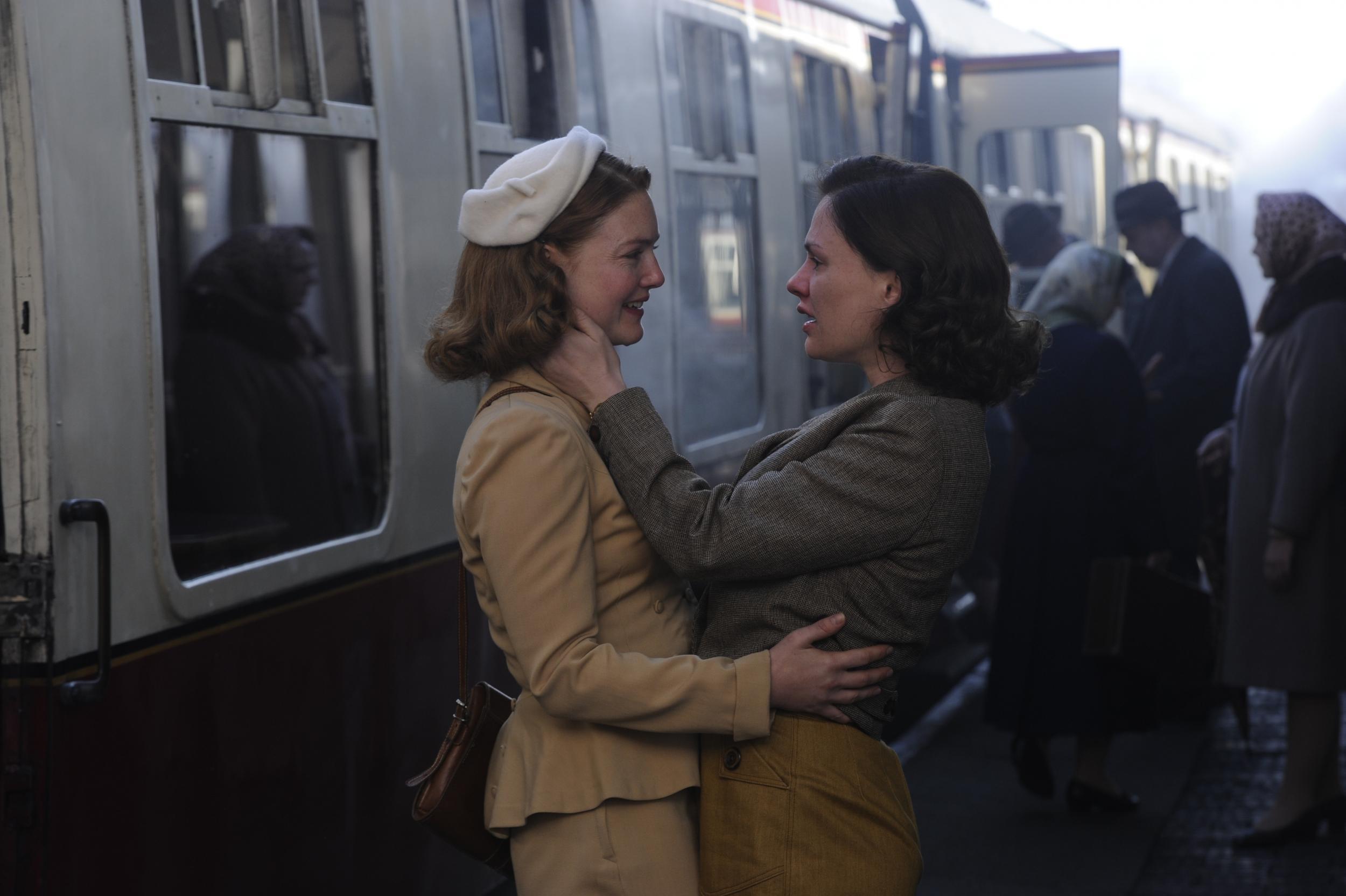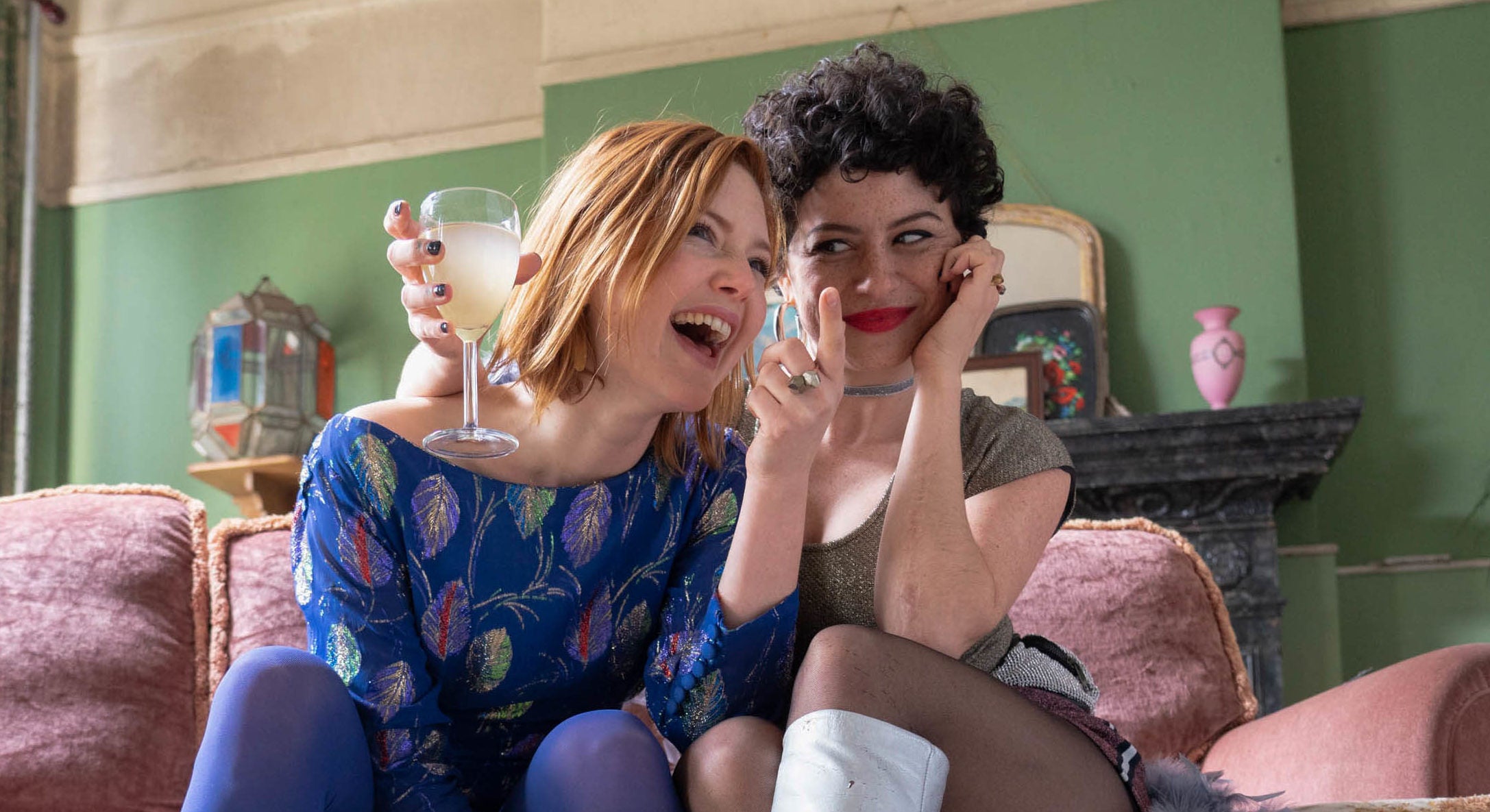Holliday Grainger: ‘Period dramas used to be a rite of passage for white, middle-class English actresses, but I think that’s changing now’
The British actor talks to Adam White about her new film ‘Tell It to the Bees’, class in the acting industry and why there’s no such thing as too many period dramas


Holliday Grainger often finds herself being asked to explain her own career choices. Unlike the Jason Stathams of the world, whose propensity for punching things goes unquestioned, Grainger is expected to dissect and analyse her enthusiasm for period drama – as if it is a genre under which she has been unwillingly trapped.
“Sometimes people have a lack of imagination,” Grainger explains. “For years I wasn’t bored of being in period dramas, I was just bored of being asked, ‘Am I bored of being in period dramas?’ And it does make you think, ‘Oh, should I switch this up now? Should I do something different?’ But actually, it sounds so cliché, but it’s all about the story and the characters.”
She does concede, however, that period dramas have long been part of a very traditional trajectory for a certain kind of British actor. “I think that historically they’ve been a stepping stone for white, middle-class English actresses,” she says. “That these are your opportunities, and these are the roles… I do feel like it used to be a rite of passage. Like, ‘Now you can play the lead in a period drama, well done!’ [But] quite often they have been the good roles. I remember thinking that of all the scripts that I used to read, the best and most complex characters were often in period dramas, and that there weren’t very many opportunities outside of that to really explore complex issues. But I think that that’s changing now.”
Based on Grainger’s incredibly divergent output in 2019, her instincts are correct. Along with the speculated return of the wildly successful BBC adaptations of JK Rowling’s Strike series later this year, she is the star of the forthcoming BBC conspiracy series The Capture, and in August she can be seen in Animals, a wonderfully honest and occasionally brutal depiction of millennial anxiety, self-destruction and female friendship. There’s not a corset in sight, and she is spectacular in it. But even the period drama that she can be seen in this week, the queer romance Tell It to the Bees, is quietly radical. Director Annabel Jenkel, whose brilliantly eccentric resume includes directing 1993’s Super Mario Bros and co-creating 1980s icon Max Headroom, dips into magical realism throughout. And divergences from the film’s source material (it’s adapted from a 2009 novel by Fiona Shaw) add a more grounded and identifiable flourish to its central pairing of Grainger and Anna Paquin, who portray secret lovers finding one another within provincial 1950s Scotland.
“One of the most beautiful things about this script was that: yes, it’s a period romance, but I think the message behind it felt quite contemporary,” Grainger explains. “In the fact that they were two women coming together and it’s a relationship that helps them both be who they want to be. It’s not a doomed love story where two characters get punished at the end for being together and someone dies or whatever. They end up in way better places, through each other, than they had been in before. It’s not necessarily the one relationship in their lives that will allow them to be happy, or the one seminal relationship that allows them to be themselves. But that doesn’t mean that they won’t be able to step into the next phase of their lives as happy people.”
Grainger has been described in past interviews as being reserved or dry, with an eagerness to remain slightly unknowable as an actor. But the Grainger of today is full of warmth and laughter, and more than happy to talk about the somewhat atypical route she took to fame.

Like Paquin, Grainger began acting as a child, after being scouted aged five by a BBC casting director. Their childhoods were otherwise very different – Paquin was an Oscar winner by the age of 11 and had worked with Jane Campion, Steven Spielberg and Franco Zeffirelli before she was 16. Grainger, meanwhile, had been hit by a car on Casualty and appeared alongside 1990s pop trio Cleopatra on their short-lived sitcom Comin’ Atcha. An iconic on-screen upbringing in certain circles, absolutely, but otherwise not very comparable.
In any case, it provided both of them with valuable insight into working with child actors themselves. “I think both Anna and I could quite clearly remember being on set as kids and knowing when you’re being patronised and knowing when you’re actually being spoken to as a human,” she says. “And that goes a long way.”
For Grainger, it took an adaptation of Jacqueline Wilson’s The Illustrated Mum, shot when she was around 14, that convinced her to start taking acting very seriously. “I think I even might have cried when I got that, because I was so excited, and that doesn’t ever really happen now” she laughs. “I remember I had just got really passionate about the idea of acting for, I don’t want to say the ‘class’ of it because that sounds really w***y, but to explore different emotions and stories and different people and walks of life. I think that a lot of people at school had read Jacqueline Wilson and I hadn’t actually read Jacqueline Wilson, but I was just so excited by the story and feeling like this was a different stepping stone into the kind of jobs that I wanted to do.”
I never really got a shot at the more interesting parts until after I proved that my RP was impeccable
Despite her unusual name and reputation for corsets, cobblestone movies and adaptations of very prim and English stories, Grainger isn’t actually posh. Born and raised in Manchester, with an accent that comes and goes throughout our conversation, she’s existed for much of her fame as something of a unicorn among a generation of young British actors who have tended to come from the opposite end of the class spectrum. And, for aspiring British actors taking in the landscape of homegrown acting today, she is proof that you can be from outside of London, attend a comprehensive, and still break through. It wasn’t always easy, though.
“I think there was an element of having to really prove yourself,” she remembers. “When I was younger, I was often going up for ‘the northern best friend’ or ‘the Manchester girl’, and the more interesting parts that were out there were, you know, the period dramas. It was the Jane Austens, the Brontes, and the things that I never really quite got a shot at until after I proved that my RP was impeccable.”
She continues, “I remember I got Jane Eyre and Bel Ami at the same time, and they were the first time that I managed to get in the room with Susie Figgis, who was the casting director, and she was like, ‘Oh, you can act’ – and I was like, ‘mmm-hmm’.” She laughs at the memory. “But it did feel like I had to walk into the room and prove that I could do it. And then as soon as that was proven, I felt like there was a shift in more doors opening.”
When she’s working, and especially on the Dublin set of Animals, Grainger maintains her adopted accents even when the cameras aren’t rolling. But, she explains, it’s meant that she no longer knows what her natural accent sounds like anymore.
“Whenever I go back home it comes back a bit, but I’ve always respected actors who have managed to hold onto their accents,” she says. “Like Jodie Whittaker’s still got hers, and I’m like, ‘How did you do that for so long?’”

Like Whittaker, it is arguable that Grainger has actually benefited from her social background, providing her with a wealth of life experience, and experience of so many other walks of life, that she’s been able to disappear into such wildly different characters. Her filmography is staggering in its range: from playing the manipulative and ruthless Lucrezia in the TV series The Borgias, to the polarising Estella in Mike Newell’s 2012 adaptation of Great Expectations, to the directionlessness and endless self-sabotage of her struggling writer Laura in Animals. If anything, it is frustrating that it’s taken this long for Grainger to become a name-above-the-title star. Especially when it really should have happened far sooner.
In 2014, Grainger was cast in Tulip Fever, a high-profile literary adaptation with a starry cast that included Judi Dench, Christoph Waltz and Tom Hollander. It was, at least in the eyes of producer Harvey Weinstein, due to be the next Shakespeare in Love. Until, for obvious reasons related to Weinstein’s spectacular fall from Hollywood god to disgraced persona non grata, it vanished, dumped in British cinemas last December alongside terrible reviews, and more than four years after it was filmed. But while leads Alicia Vikander and Dane DeHaan graced all of the posters, it was Grainger who was the film’s secret weapon, bringing genuine honesty to a wildly melodramatic plot involving baby swaps and sexually rambunctious fishmongers.
“I hadn’t even realised it had come out,” she confesses. “It was one of those films where people were like, ‘Where is it?’ and I’m like, ‘It’s been and gone actually’. I actually quite enjoyed the film. I thought it was good! I’m not quite sure why that didn’t work out, and then obviously it was…” She trails off.
That Tulip Fever disappeared into the cinematic ether didn’t ultimately do Grainger any harm, but it did mean many have only discovered her in the last year or so, in a host of projects that have finally proven her staggering range and attraction to complex characters you either adore or entirely loathe. She wouldn’t have it any other way.
“I’m always drawn to characters that have complexity and women who, if I’m reading something I’ll ask, ‘Ooh, who is she?’ If I don’t necessarily know from the first page how I’m going to play it, that is what makes me want to know more about the character and what will draw me to a role. And, you know, with Lucrezia Borgia or Bonnie Parker [in the 2013 mini-series Bonnie & Clyde], when there is so much historical information out there as well and thoroughly different viewpoints, you can choose which bits you put into the role. When they’re morally ambiguous or when you’re trying to find reasons, still, for why they’re doing something – it keeps you on your toes, and I think that’s definitely why I’m drawn to characters that aren’t necessarily boxable.”
For an actor who has persevered and flourished after so many years of being forcibly put into boxes herself, it’s a wonderful bit of irony.
Tell It to the Bees is out now, with Animals released 2 August
Join our commenting forum
Join thought-provoking conversations, follow other Independent readers and see their replies
Comments
Bookmark popover
Removed from bookmarks